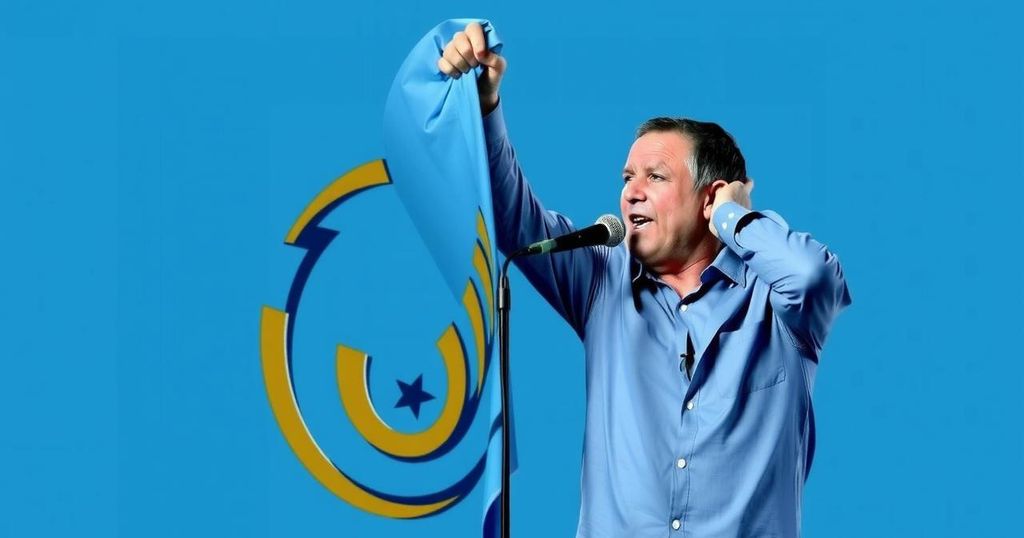Uruguay’s Governing Party Concedes Presidential Run-Off to Left-Wing Challenger
Uruguay’s conservative government conceded the presidential run-off election to left-wing candidate Yamandu Orsi, marking a return to Broad Front leadership. Alvaro Delgado acknowledged Mr. Orsi’s victory as voter turnout reached 89.4%. Mr. Orsi’s moderate policies intend to address social issues without radical changes, aiming to attract investment while reforming social security.
In a significant electoral shift, Uruguay’s governing conservative coalition conceded defeat in the presidential run-off election to left-wing challenger Yamandu Orsi. During his concession speech, Alvaro Delgado, the candidate representing the centre-right National Party, expressed his regret but acknowledged Mr. Orsi’s victory. As over 57% of the vote was counted, Mr. Orsi, representing the centre-left Broad Front, will assume the presidency, marking the end of the conservative government that came to power in 2020.
This electoral outcome signifies a notable change in leadership in Uruguay, as the right-leaning administration has held power for a brief period since the 15-year rule of the Broad Front came to an end with Luis Lacalle Pou’s election. The Broad Front had previously garnered international recognition for its progressive policies, including the legalization of abortion and same-sex marriage. In response to the election results, current President Lacalle Pou congratulated Mr. Orsi on social media, expressing his willingness to support the transition.
Voter turnout for the run-off was reported at 89.4%, consistent with participation levels from the first round of voting. Mr. Orsi, a former history teacher and experienced mayor, emerged with approximately 49% of the votes, while Mr. Delgado garnered around 46%. Despite the overall global trend of incumbent parties facing backlash during this landmark election year, Mr. Orsi’s moderate policies indicate continuity rather than extreme change.
His platform includes plans for tax incentives aimed at attracting investment and proposals for reforming social security, particularly lowering the retirement age. However, these proposals do not fully align with the ambitious reforms advocated by Uruguay’s unions earlier in the year. Supporters, such as nurse Yeny Varone, emphasize the hopeful implications of Mr. Orsi’s leadership for the future, particularly concerning improved labor conditions and healthcare access.
Uruguay’s political landscape has undergone significant changes in recent years, particularly following the 2020 elections when Luis Lacalle Pou of the National Party ended a lengthy period of Broad Front governance. This shift was marked by conservative policies that contrasted sharply with the Broad Front’s progressive agenda. The recent run-off election thus represents not only a rejection of the current sitting government but also a return to more moderate leftist policies that focus on social welfare and fiscal sustainability. Understanding this context helps frame the implications of Mr. Orsi’s victory and potential policy direction.
The recent presidential run-off in Uruguay has resulted in the election of Yamandu Orsi, signifying a critical political transition as the conservative government concedes defeat. With strong voter turnout and a close vote count, Mr. Orsi’s moderate approach appears to appeal to a populace seeking stability amid global economic uncertainties. While his platform emphasizes social welfare and investment incentives, it also suggests a commitment to continued fiscal restraint, reflecting a nuanced balance between progressive ideals and practical governance.
Original Source: www.shropshirestar.com




Post Comment